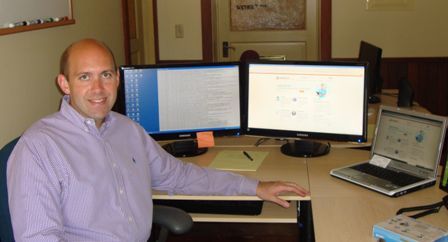Friday could be the day more than 2,000 small business owners and investors in California learn if they’ll have to pay $120 million in taxes the state once told them they would never owe.
That’s when a bill aimed at stopping the state’s attempt to retroactively impose taxes on capital gains could move out of the Appropriations Committee for a vote of the full California Assembly. The legislative session ends October 15. If that deadline passes without legislative approval by legislators, approximately 2,500 people who invested in businesses and took capital gains under an incentive program approved by the state could be on the hook for the money.
On Tuesday a group of affected business investors met with Appropriations Committee Chairman Mike Gatto (D-Burbank) and members of Gov. Jerry Brown’s staff to discuss a legislative remedy.
Bill Denies Full Relief
“While we’ve made a lot of progress, we’re not entirely happy with the bill [SB 209] in its current form,” said Brian Overstreet, CEO of Healdsburg, CA-based AdverseEvents and co-founder of California Business Defense, which has been working to turn back the retroactive taxation. “It currently provides for about 75 percent relief instead of the full relief from the retroactive tax that we think is fair and appropriate. That was the purpose of our trip yesterday — to try to get full relief restored. We won’t know where we stand on that until Friday.
“I’m thankful that the legislators are dealing with this issue as a top-line, very important issue and cautiously optimistic that they will do the right thing,” Overstreet said. “As for what happens if things go sideways, it’s too early to tell, but I imagine that the 2,500 taxpayers who get stuck with the bills will look to take other actions beyond the reasonable and equitable legislative fix we’ve spent all year working on.”
The issue stems from a tax incentive program California enacted 20 years ago to lure entrepreneurs and early-stage investors. The incentive allowed sales of stock of a qualified small business to be taxed at half of the regular state rate on capital gains or rolled over into a new qualified small business if reinvested within 60 days of the sale.
State Not Required to Collect
But the California Franchise Tax Board late last year claimed the power to tax the money retroactively — with interest – all the way back to 2008 for the 50 percent of the taxes people had legally excluded under the incentive program.
The FTB made the decision in response to a court ruling issued last year in Cutler v. Franchise Tax Board. The Second District Court of Appeal ruled a requirement that a business must have 80 percent of its payroll and assets in California to qualify for the incentive violated the Constitution’s Commerce Clause. However, the court did not order the collection of taxes that had been forgiven under the program. The tax board staff made that decision.
Overstreet learned of the decision after receiving a letter from his lawyers explaining that he could be subject to retroactive taxation because of a business he had sold under the incentive program. In 1999 Overstreet cofounded Sagient Research Systems, a data company in San Diego that had about 40 employees, all of them in California. In 2012 he sold the company, which resulted in a capital gain. Some of the money he saved under the program went into his new company, AdverseEvents, which compiles and provides safety and outcome information on all FDA-approved drugs.
Money Is Tied Up
After learning of the FTB’s decision he began rallying opposition to the move, pointing out that he and others acted in good faith on the promises the state had made, and also pointing out most people’s tax savings were used to invest in other ways.
“They don’t have that cash sitting around,” he said at the time.
The move also angered others in the state, including at least 38 members of the California Assembly, who on February 19 signed a letter to the FTB in which they wrote the decision to send retroactive tax assessments “is not acceptable, inconsistent with the law as we understand it and contradicts prior FTB action . . . Under no circumstances is FTB staff required [their emphasis] to issue retroactive QSBS assessments going to back to 2008. That is simply not true and there is nothing in the Cutler case – or any other that we are aware of that says so. FTB staff chose [their emphasis] to do so for whatever reason.”
In a separate letter, Sen. Ted Lieu (D-Torrance) wrote, “I recently spoke with a taxpayer who all of a sudden is faced with a new retroactive tax bill of over $200,000 plus interest even though he complied with the law. I am informed there are thousands of other taxpayers who will be faced with potentially even higher retroactive bills and penalties. I am requesting that your staff reverse the retroactive portion of the decision.”





